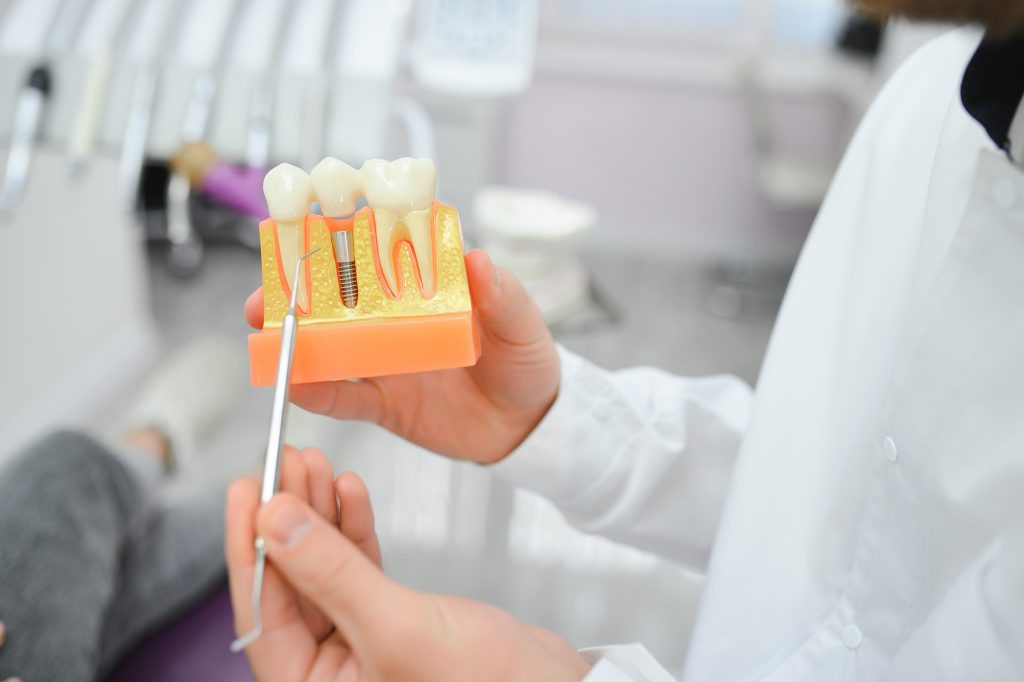Bone Graft at Apopka Dentist
What drives the price?
1) Graft material
-
Synthetic (alloplast): Acts as a scaffold to hold shape and space while your bone integrates; often used with other materials.
-
Allograft (donor bone): Common, widely used, and typically mid-priced.
-
Autograft (your bone): From another area of your body; usually the costliest due to the extra surgical site, but preferred in select complex cases.
2) Procedure complexity
Larger defects, difficult access, or sites requiring advanced techniques increase surgical time and cost.
3) Additional procedures
Extractions, sinus lifts, or ridge augmentation may be performed with your graft and will affect total fees.
4) Treatment setting & efficiency
Coordinated, under-one-roof care can streamline visits and help you understand the full cost up front.
Bone graft pricing with vs. without implants
-
With implants: If your graft is part of a comprehensive implant plan (single tooth, multiple teeth, or full-arch), fees may be packaged together for clarity.
-
Standalone graft: When a graft is done now to stabilize bone for the future—or to preserve the ridge—there’s typically a separate charge.
Either way, a successful graft helps protect your implant investment and supports long-term oral health.
Insurance and payment basics
Does insurance cover bone grafts?
Coverage varies widely by plan and the reason for treatment. Some policies contribute when a graft is medically necessary (for example, to treat disease or trauma). We’ll provide an itemized treatment plan you can use to check benefits or submit a claim, and we’re happy to answer benefit-related questions so you can make an informed choice.
No insurance?
Many patients use payment plans or third-party financing to make care more manageable. Ask our team about options that fit your budget.
Is a dental bone graft worth it?
In the right cases, yes. Adequate bone is critical for implant stability and long-term success. Skipping a needed graft can lead to:
-
Implant instability or failure
-
Continued bone loss (resorption)
-
More extensive, costlier revisions later
A timely graft supports natural function, facial structure, and predictable outcomes.
Are there lower-cost alternatives?
Dentures and bridges can replace missing teeth with a lower upfront cost, but they don’t stop bone loss the way implants can. For many patients, grafting plus implants offers the most natural feel, chewing strength, and long-term value. We’ll review all options—including pros, cons, and costs—so you can decide confidently.
What affects bone graft cost the most?
Material choice & volume needed
-
Synthetic: Often used to shape and support the grafted site, frequently combined with bone particles.
-
Allograft: Well-established option with good compatibility and availability.
-
Autograft: Highest cost due to harvesting; reserved for specific indications.
Provider expertise & technique
Experienced surgical teams and precise planning (including 3D imaging when indicated) contribute to predictable healing—and may reduce the chance of added procedures later.
Location & logistics
Local market rates and the number of visits or offices involved can influence total cost. At Apopka Dentist, we emphasize clear estimates, coordinated scheduling, and efficient care.
What to expect at Apopka Dentist
-
Personalized consultation with imaging and a clear diagnosis
-
Transparent, written estimate before treatment
-
Coordinated care for grafts and implants, when appropriate
-
Comfort options, including local anesthesia and sedation for anxious patients
Every smile—and every graft—is unique. We’ll tailor your plan to your health goals, timeline, and budget.
Bone Graft Cost FAQs
How long does a dental bone graft last?
Once integrated, the graft becomes part of your jaw. Timely implant placement, good hygiene, and regular checkups help maintain bone volume over the years.
How painful is a dental bone graft?
Most people report mild to moderate post-op soreness similar to a tooth extraction. Local anesthesia is used, and most discomfort is manageable with over-the-counter medication. Sedation is available for added comfort.
Can I get a bone graft years after losing a tooth?
Often, yes. Even with long-standing bone loss, grafting may still be possible. The type and extent of graft depend on your current bone anatomy, which we’ll assess during your consultation.
Ready to learn what your graft will cost?
Schedule a consultation with Apopka Dentist. We’ll examine the area, review your options, and provide a customized estimate—so you can move forward with clarity and confidence.

